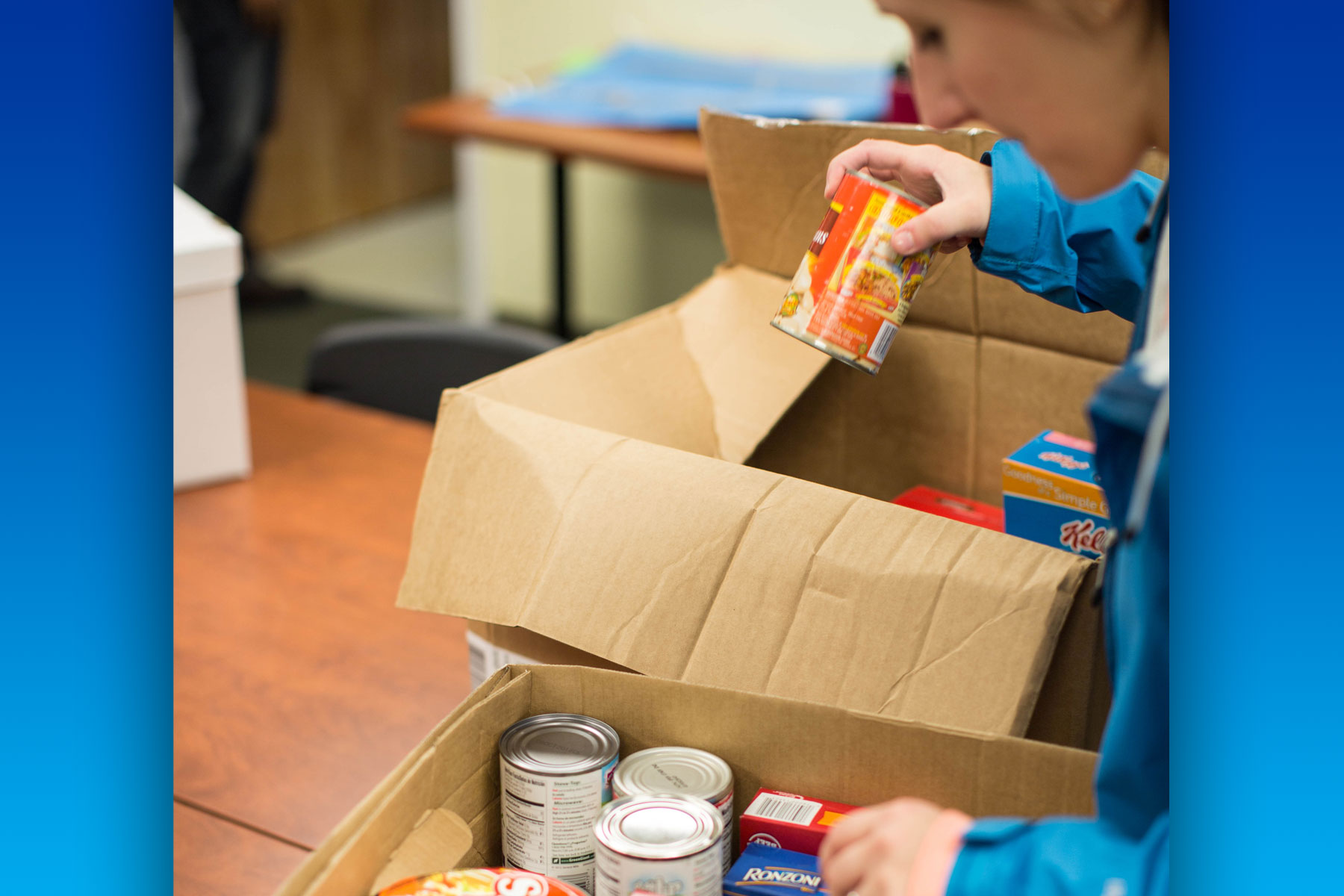Southern takes steps to address basic needs
Responding to an issue occurring at colleges nationwide, Southern is looking to establish an on-campus food pantry and social services resource center to help a growing number of students meet their basic needs of food, shelter, transportation, child care and other essentials.
Based on surveys conducted with Southern students over the last few years, about 30 percent of the student population falls into the category of food insecure, said Jules Tetreault, dean of student affairs. (Food insecurity is a term to describe a lack of adequate access or money to buy food.)
“It’s a problem we are seeing at all levels – local, state and national,” Tetreault said. “In fact, 14 percent of the total population in Connecticut is considered food insecure, while at a national level, we are seeing a range of 14 to 40 percent at four-year universities.”
Student Affairs is planning to have a pantry operating by the spring semester, eventually including a social services resource center that would provide guidance for students struggling with other basic needs.
To support the project, the university is donating proceeds from its 125th anniversary gala on Oct. 4. The sold-out “A Night of Inspiration,” in the Adanti Student Center Ballroom, will feature Tony Award-winning actor Leslie Odom Jr. – who played the role of Aaron Burr in the original cast of the hit Broadway musical Hamilton.
“As we conclude our 125th anniversary year, it’s important to look at how Southern has changed, especially in recent times,” said President Joe Bertolino. “The demographics of our population are vastly different, the expectations of students, parents and employers are increasingly outcomes oriented and the competition for enrollment and private support has intensified.
“With this in mind, the continued well-being of our students is a high priority. It is important to acknowledge the complexities of their lives, and particularly, those of our low income and working students.
As the cost of higher education has increased, the availability of financial assistance has not kept pace – and these factors have seen an increase in the number of students who are not able to meet their basic needs, Bertolino said.
“Simply put, when students can’t eat, when they have no place to sleep, when they have little family encouragement for bettering their lives through education, we must do more than offer classes and assignments,” he said. “We must holistically help them navigate the complexities and challenges that they face, even as we focus intentionally on supporting their capacity to learn and ability to persist to graduation.”
The problem is also being addressed at the national level. Southern alumna and Connecticut Congresswoman Jahana Hayes, ’05, has introduced a new bill, along with Connecticut Senator Chris Murphy, to address the food insecurity crisis among college students. The Closing the College Hunger Gap Act would empower low-income college students with the information they need and ultimately reduce food insecurity on campuses nationwide.
Tetreault said Southern is at the higher end – though not at the highest – of the food insecurity category. He said this is due, in part, to the demographics of the student population with a growing percentage of students who belong to racial and ethnic minorities, as well as a relatively high percentage of first-generation college students. He said these students tend to fall lower on the socioeconomic strata.
Tetreault echoed President Bertolino’s comment that financial assistance at the state and federal levels has not kept pace with the increased costs to attend college.
“We know that food insecurity has a negative effect on academic performance,” he said. “In fact, these students report lower GPA scores, are six times more likely to withdraw from a class, and 15 times more likely to fail a class. And food insecure students have reported poorer physical health and higher levels of stress, anxiety and depression.”
He noted that K-12 school systems throughout the country offer free or reduced lunch prices to students based on family income, and some also offer similar breakfast programs. “But the need and the hunger don’t stop when you graduate from high school.”
Tetreault added that Southern already has a community garden and a food recovery program at Connecticut Hall – the university’s main dining hall – which are designed to benefit less fortunate individuals in the local community.
“A food pantry would be consistent with these efforts, but would directly benefit our own students,” he said.
The university has also adopted smaller scale programs to help needy students, such as a mobile food pantry, departmental food closets and a “swipe it forward” program designed to enable students support their peers through meal donation in the dining halls.
You can support Southern’s Food Insecurity Fund by visiting southernct.edu/giving, and choosing “Food Insecurity Fund” upon checkout.


